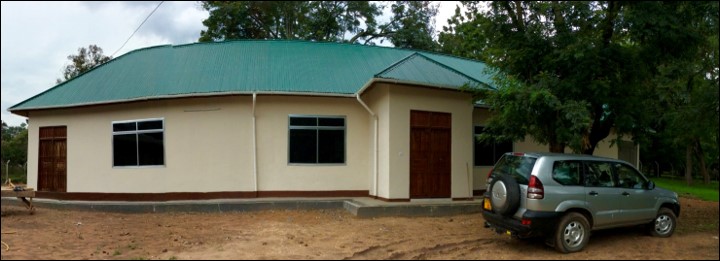
ESSENTIALS is developing and evaluating approaches to assess the performance of new classes of insecticide treated nets (ITNs) for malaria control.
Widescale use of ITNs has been incredibly successful in reducing malaria cases and deaths in Africa. But the mosquitoes that transmit the malaria parasite have evolved to be resistant to the pyrethroid insecticides used in all ITNs. Fortunately new classes of ITNs have been developed; these all still contain pyrethroids but also include a second chemistry that can either be another insecticide (e.g Interceptor G2 nets from BASF), an insect sterilising agent (e.g Royal Guard nets from DCT) or a synergist which increases the potency of pyrethroids (e.g PBO-pyrethroid nets produced by several net manufactures).
Malaria control programmes, and organisations that buy and distribute ITNs, need to know which of these new types of nets will be most effective to control malaria in different regions. Clinical trials have been completed, or are ongoing, to determine if the new classes of nets can provide better levels of protection against malaria than standard ITNs. But these trials will not provide information on where the nets might have the greatest impact. Trials are expensive and take many years to complete. They also only provide information on the impact of the nets on the local mosquito population at the trial site.

The LSTM-NIMR Vector Biol lab at Mwanza, Tanzania
Entomological studies are essential to understand how different species of mosquitoes, and populations with different levels of pyrethroid resistance, are affected by the different net types so that results from trials in one country can be used for decision making in another, with a different set of mosquito populations. But many of the assays developed to evaluate standard pyrethroid only ITNs are either inappropriate or not sufficiently informative, for nets containing two different chemistries.
The ESSENTIALs project is:
Developing, performing and evaluating new entomological assays to determine the performance of new classes of nets against different mosquito populations across Africa
Determining whether a combination of entomological monitoring and mathematical modelling, could be used to predict the efficacy of future new classes of ITNs without the need for lengthy and costly clinical trials.
ESSENTIALs is funded by the Bill and Melinda Gates Funded project (2019-2022) and is led by LSTM in partnership with CNRFP Burkina Faso, NIMR Tanzania, IMP UK, UWAR UK and UAC Benin.
